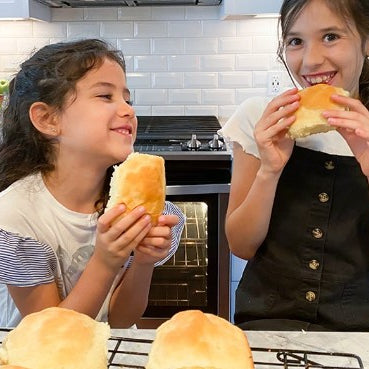One of the most common questions homeschool parents face is, “How do you socialize your child?” It’s a valid concern, as traditional schooling often provides built-in opportunities for children to interact with peers. However, homeschooling offers equally rich opportunities for socialization—if you know where to look and how to foster them.
Hey there! Clicking these links could mean more adventures for us (and our travel fund).
In this post, I’ll explore positive, practical ways to help your homeschooled child build meaningful friendships and social skills. Socialization is not just about being around other children; it’s about learning how to communicate, build relationships, and navigate different social settings confidently.
Understanding Socialization in Homeschooling

The assumption that homeschooled children lack social skills is a misconception. The truth is, how well a child socializes largely depends on the effort and attitude of their parents. Homeschooling can provide unique opportunities for children to interact with people of all ages and backgrounds, helping them develop well-rounded social skills.
Socialization isn’t just about peer interaction; it’s about preparing your child to engage meaningfully with anyone—be it a neighbor, a teacher, a future colleague, or even a barista at their favorite coffee shop.
Practical Tips for Socializing Your Homeschooled Child
Here are some creative and effective ways to ensure your homeschooled child has plenty of opportunities to socialize and make friends:
1. Join Local Groups and Communities
- Facebook and Online Groups: Search for local homeschooling, unschooling, or interest-based groups on platforms like Facebook. Many communities organize field trips, playdates, or co-op learning opportunities.
- Community Centers: Look for local activities or clubs at your community center, library, or YMCA. These events often cater to kids of various age groups and interests.
- Interest-Based Groups: Whether your child loves art, science, or gaming, there’s likely a group nearby that shares their passion.
2. Participate in Extracurricular Activities
- Enroll your child in activities like cooking classes, dance, martial arts, gymnastics, theater, or swimming. These structured environments encourage teamwork and camaraderie.
- Sports teams, such as soccer, baseball, or basketball, are excellent for teaching cooperation, competition, and resilience.
3. Take Advantage of Homeschool Flexibility
Homeschooling offers a unique advantage: a flexible schedule. This allows your child to socialize with kids who attend traditional schools in the afternoons or evenings. Finish schoolwork by 3 pm, and let your child join local kids for outdoor play, park visits, or organized activities.
4. Volunteer Together
Volunteering is a fantastic way to meet people while teaching your child the value of giving back to the community. Opportunities like helping at animal shelters, community gardens, or food banks can introduce your child to people of all ages while instilling empathy and responsibility.
5. Encourage Leadership Roles
Older children can take on leadership roles, such as becoming camp counselors, organizing neighborhood events, or mentoring younger kids. These experiences build confidence and improve communication skills.
6. Host Social Events
Take the initiative to host playdates, movie nights, or game days at your home. By creating a welcoming environment, you’re fostering connections for your child and building a community for yourself as a homeschooling parent.
7. Enroll in Classes or Camps
Classes in art, music, coding, or even cooking provide an excellent chance to learn while making friends. Seasonal camps—whether day camps or overnight—offer immersive socialization experiences.
8. Encourage Outdoor Play and Limit Screen Time
While online communities and gaming can be beneficial, it’s important to encourage outdoor play where kids can meet peers in person. Trips to the park, nature walks, or even backyard games can spark friendships and help develop teamwork skills.
Fostering Social Confidence
Socialization isn’t just about meeting people; it’s also about equipping your child with the skills to connect meaningfully. Here’s how to nurture their confidence:
- Model Social Behavior: Children learn by example. Show them how to start conversations, ask questions, and listen actively.
- Encourage Small Steps: If your child is shy, help them start small by introducing them to one or two new people at a time.
- Praise Efforts: Celebrate their attempts at social interaction, even if it doesn’t result in immediate friendships. This builds confidence over time.
- Teach Empathy: Encourage your child to understand others’ perspectives and feelings. This fosters deeper, more meaningful connections.
A Personal Story: Learning to Make Connections
Let me share an example from my own experience. My youngest daughter (who was 13 at the time) attended a road-schooling rally where she knew no one. Understandably, she was nervous about introducing herself. She approached two girls her age, but they didn’t seem interested in including her. Instead of giving up, she found a younger group of girls and joined their activities.
By the end of the day, she had befriended a fourteen-year-old neighbor, and the two spent hours talking and playing. This experience taught her resilience and flexibility in social settings—valuable life skills that extend beyond making friends.
Why Age Diversity Matters

One of the unique advantages of homeschooling is the opportunity to interact with people of different ages. In traditional school settings, children often socialize exclusively within their grade level. In contrast, homeschoolers frequently engage with mixed-age groups, which can lead to richer, more diverse relationships.
Encourage your child to make friends of all ages. Older kids can mentor younger ones, while younger kids often bring energy and creativity to the table. These cross-age interactions prepare children for real-world settings where they’ll need to work and communicate with people from all walks of life.
Building Lifelong Social Skills
Ultimately, socialization is about teaching your child to navigate the world with confidence, kindness, and curiosity. Whether they’re ordering a coffee, making a new friend, or collaborating with future colleagues, the goal is to equip them with the skills to thrive in any social setting.
As parents, we play a crucial role in this process. By creating opportunities, modeling positive behavior, and encouraging our children to step outside their comfort zones, we can ensure they develop the social skills they need to succeed.
Homeschooling doesn’t hinder socialization—it empowers it. By taking an active role in your child’s social development, you can help them build meaningful connections and lifelong friendships. With effort, intention, and creativity, your homeschooled child can thrive socially, no matter where life takes them.









